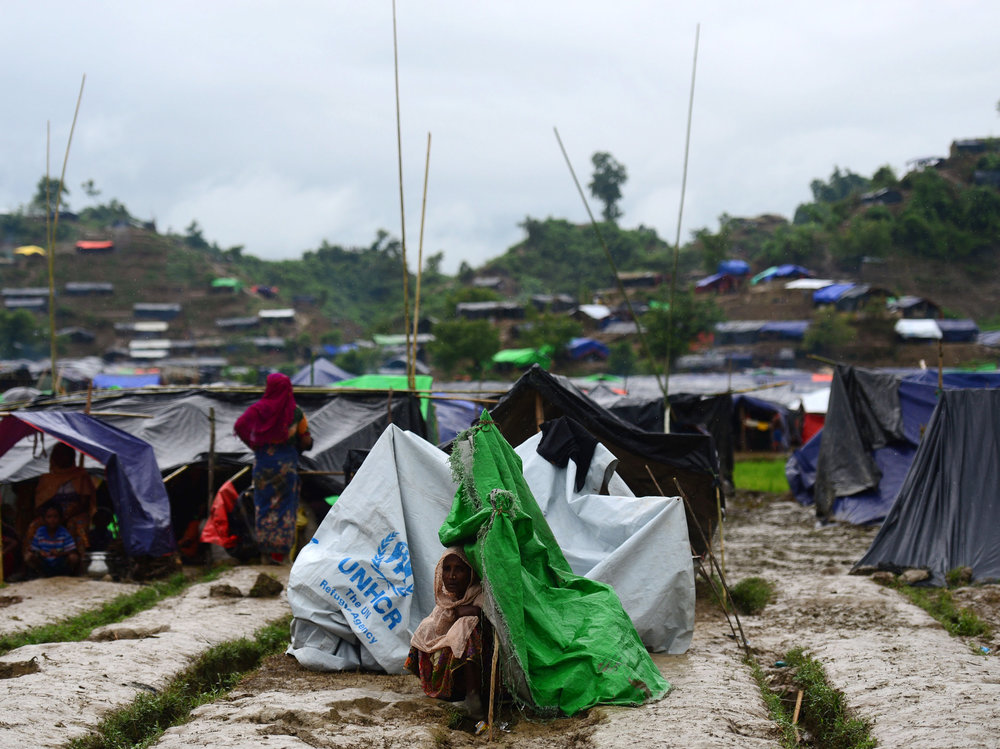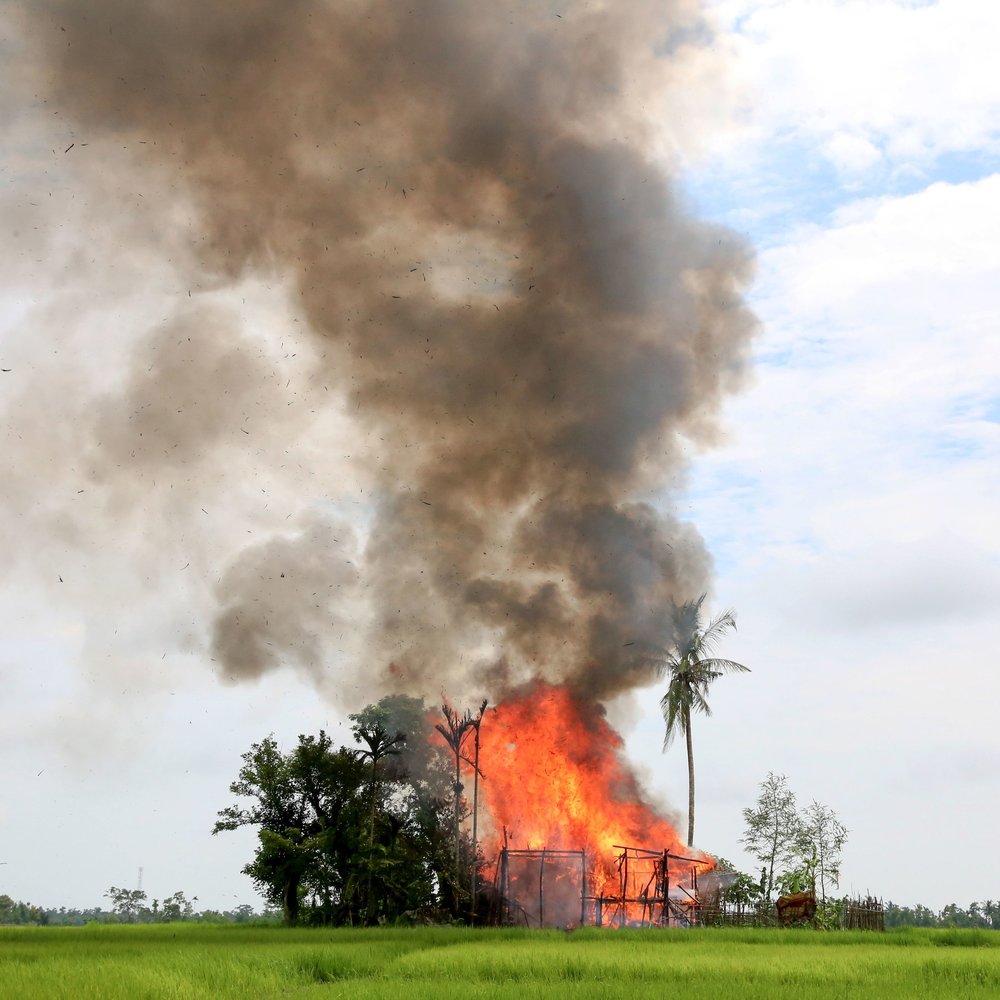The number of displaced Rohingya refugees is estimated to be around 313,000The Rakhine state of Myanmar is in chaos as hundreds of thousands of Rohingya people flee their homes in hope of finding shelter in Bangladesh. The International Organization for Migration reports the number of refugees seeking asylum at 313,000.
NPR reports that the Rohingya people are fleeing murder, rape, and arson. These grievous crimes are being perpetrated by the government in retaliation for several August 25 attacks on military outposts. The militant group responsible for the attacks, which claimed about a dozen lives, is associated with the Rohingya.
Zeid Ra’ad Al Hussein, the United Nations high commissioner for human rights, released a statement Monday admonishing the Myanmar government for impeding a UN investigation:
“Because Myanmar has refused access to human rights investigators the current situation cannot yet be fully assessed… the situation seems a textbook example of ethnic cleansing.”

He cited reports that Myanmar authorities have been turning away all returning refugees unless they can provide “proof of nationality” — “a cynical ploy to forcibly transfer large numbers of people,” in Hussein’s words, given the fact that Myanmar denies the Rohingya citizenship, even those who were born there.
Al Hussein added, “I am further appalled by reports that the Myanmar authorities have now begun to lay landmines along the border with Bangladesh” targeting Rohingya who might return…
Tales of the atrocities are coming out of Bangledeshi refugee camps. One woman, Rashida, spoke of hiding her children in the jungle when the shooting began, only to return to her village to find the streets littered with corpses. Similar stories can be heard in all the refugee camps.
The Myanmar government dismisses these reports as “propaganda of stateless dissidents,” and claims that the burned villages were attacked by Muslim militants in retribution for the Rohingya’s refusal to submit to their cause.
The group responsible for last month’s attack has called for a truce to give humanitarian workers a chance to help the Rohingya people, but the government has dismissed this as well, stating they are “unwilling to negotiate with terrorists.”
Aung San Suu Kyi, the 1991 Nobel Peace Prize winner and de facto Myanmar civilian leader, had come under criticism for her silence on the issue, until she released a statement on Facebook last week. In the post, she cited the reports of government violence as a “Huge iceberg of misinformation,” which promotes the “interests of the terrorists.”
That statement has been criticized by the New York Times and Bishop Desmond Tutu, who called Aung San Suu Kyi out by name:
“Your emergence into public life allayed our concerns about violence being perpetrated against members of the Rohingya. But what some have called ‘ethnic cleansing’ and others ‘a slow genocide’ has persisted — and recently accelerated. The images we are seeing of the suffering of the Rohingya fill us with pain and dread.”
“My dear sister,” Tutu added. “If the political price of your ascension to the highest office in Myanmar is your silence, the price is surely too steep.”
It is still unclear where the Rohingya people will end up, as Myanmar is making it clear that they have no interest in allowing them to return. One idea is to settle the Rohingya on an island of their own in the Bay of Bengal, but this too would create problems, due to rising sea levels and vulnerability to pirate attacks.









